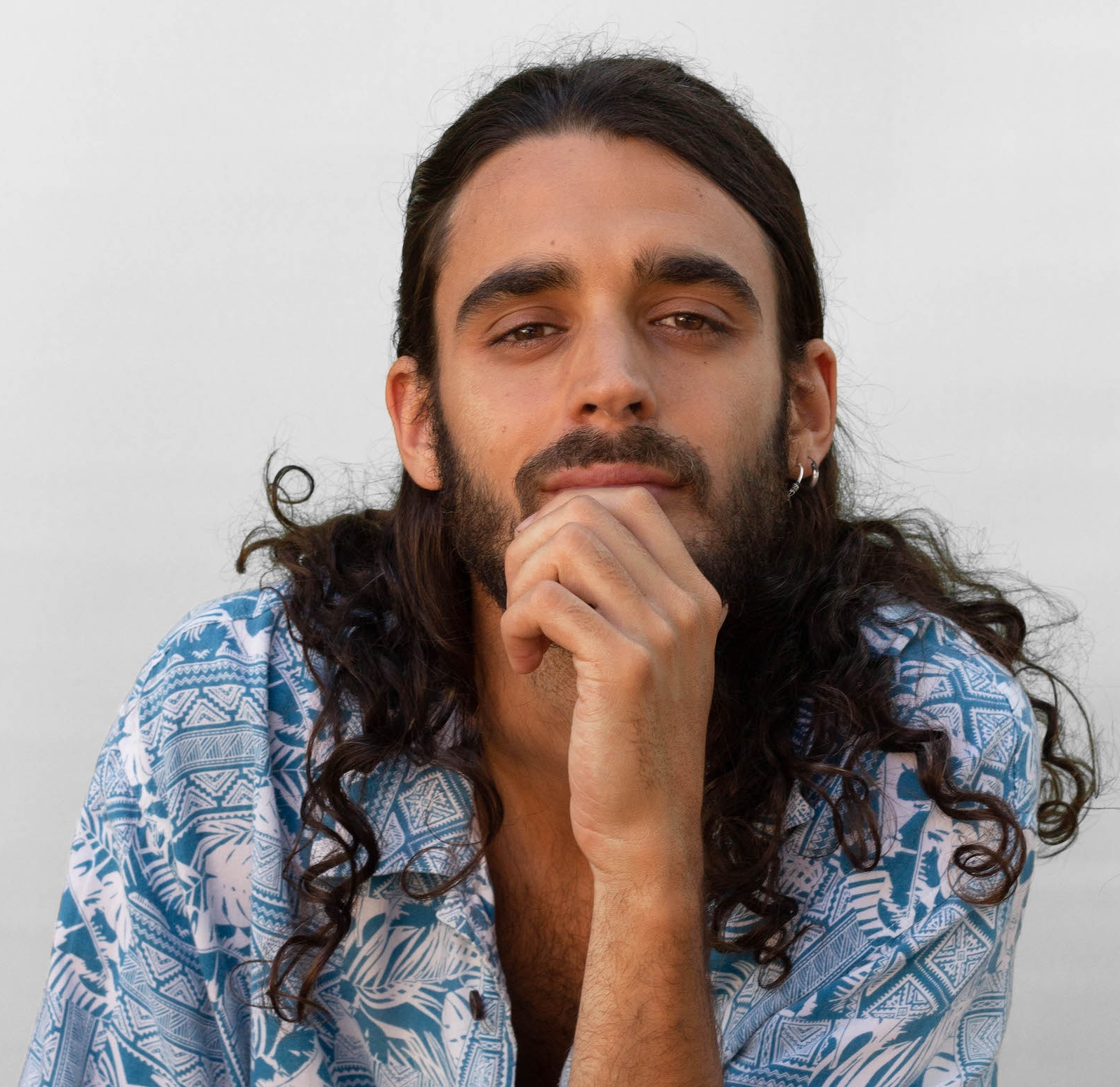Pedro Pastor, Singer/Songwriter: “We’re Still Children of the Dictatorship”
Pedro Pastor, the young Spanish singer/songwriter who has performed at several ALBA events, has dropped a new album. An interview.
“I will not forget, to make sure / The effort wasn’t for naught / To be able to tell my children of their grandparents / So that, one day, their remains will rest in justice,” Pedro Pastor sings in “Los olvidados” (Those Who’ve Been Forgotten). The song, which is featured on his new album, Vueltas, reflects Pastor’s life-long commitment to historical memory. Born in 1994 in Madrid into a musical family, Pastor played at ALBA’s 2015 gala, when the ALBA Puffin Award acknowledged Emilio Silva and the Association for the Recovery of Historical Memory. The young musician came back to ALBA’s gala in 2020, this time with his father, the folk singer Luis Pastor.
You were about six when Silva founded the Association. In other words, Spain has been digging up mass graves from the war and Francoism for almost as long as you can remember.
That’s true, although it’s important to add right away that the process has been slow and has only occurred thanks to the efforts of regular citizens and their associations. But it’s really the state that should have taken responsibility for that task. Every year that passes without reparations for the victims of Francoism is one too many.
Is there much awareness among your generation about this unsettled business from the past?
Sadly, no. I am afraid I’m an exception, having been lucky enough to learn about it from my parents and the circles I move in. But there are tons of people my age who’ve never even heard of the Association for the Recovery of Historical Memory, let alone the exhumations.
What’s that due to? Are they not interested, or is the information not available to them?
I would turn the question around. It’s not so much that the young are uninterested. The truth is that the institutions in our country have been very interested in making sure that we Spaniards remain uninformed about our own history. For me, it’s become very clear that the dictatorship is still part of our genetic makeup, so to speak. It’s lodged itself into our collective unconscious. We’re still children of Francoism. But our institutions have worked hard to shield us from that realization.
If you’re an exception, do you see yourself as a link, an agent of transmission between generations?
I’m not sure if I’m a link or agent of anything. What I do believe is that all us humans have a civic responsibility. For artists and musicians that responsibility is all the greater, given that we reach many more people with our art and music. My interests in that sense go beyond the history of Spain. I’m also very interested in the histories of the other countries I’ve traveled to. But I am keenly aware of the knowledge gaps among my own generation. Nothing is more thrilling to me than the idea that my music might spark something in people, motivating them to do research, get involved, or even just start a conversation with their families about the past. People my age still have grandparents who lived those times and can speak about them, although it’s often still very difficult because there continues to be a culture of fear. But one thing is for sure: they’ll never tell us anything if no one asks them.
You regularly play in Latin America. In “Los olvidados” I thought I heard a slight echo of Silvio Rodríguez, the Cuban folk singer.
Really? I think of that particular tune as more of a pop song, musically closer to Rozalén or Alejandro Sanz. But it’s true that I’m an enormous fan of Silvio’s work and have spent many hours of my life listening to his music. (Laughs.)
You’re not the only Spanish political folk singer to acknowledge the influence of the Latin American tradition.
Of course! There have been so many great Latin American singers, from Silvio Rodríguez to Víctor Jara, Mercedes Sosa, and Violeta Parra. You’re right that influence has been very important, but also very logical—and not only because Latin America is much larger than Spain and has many more musicians. Francoism has been another factor. Don’t forget that political folk here in Spain was forced into illegality for close forty years. Imagine the damage that did to our cultural fabric. To make things worse, the Francoist state appropriated Spanish folklore for its purposes. That, too, caused a lot of harm. If today something like the copla is not seen as a wonderful piece of folk culture but as something tacky or kitsch, it’s Francoism that’s to blame. It’s up to us to work to repair that damage and rediscover our own folkloric tradition.
Sebastiaan Faber teaches at Oberlin College. A longer version of this interview appeared, in Spanish, in the magazine La Marea.














[…] Full text at The Volunteer. […]